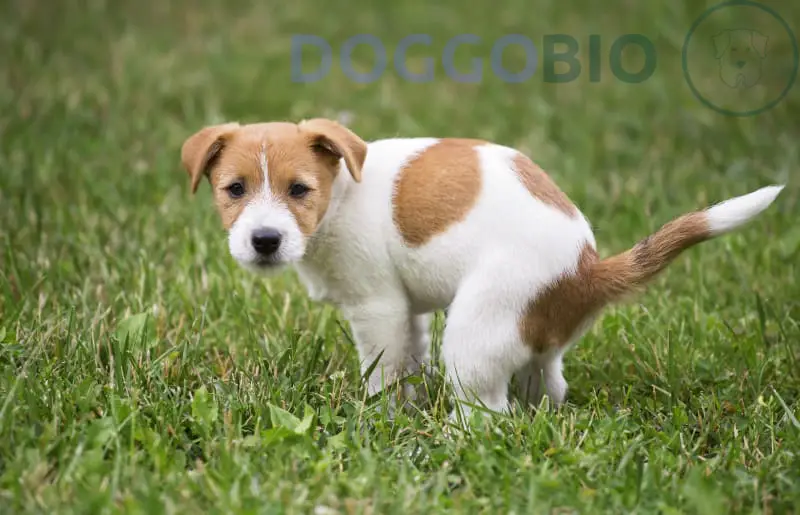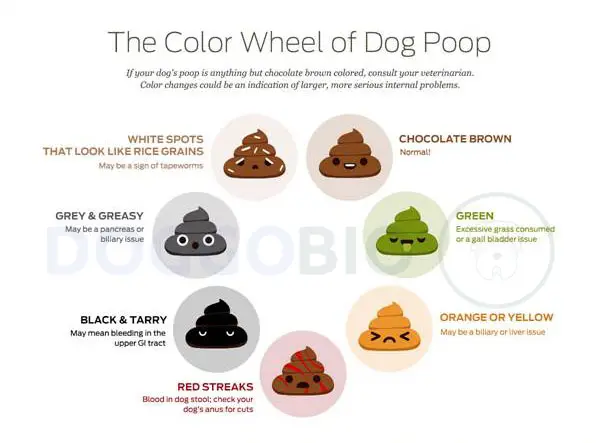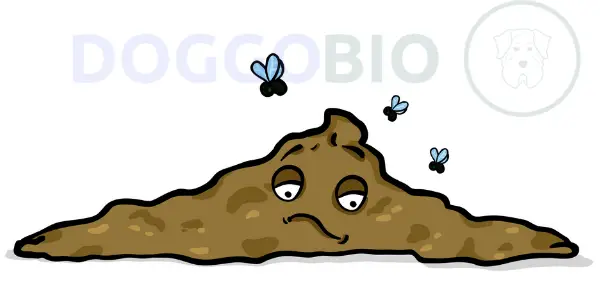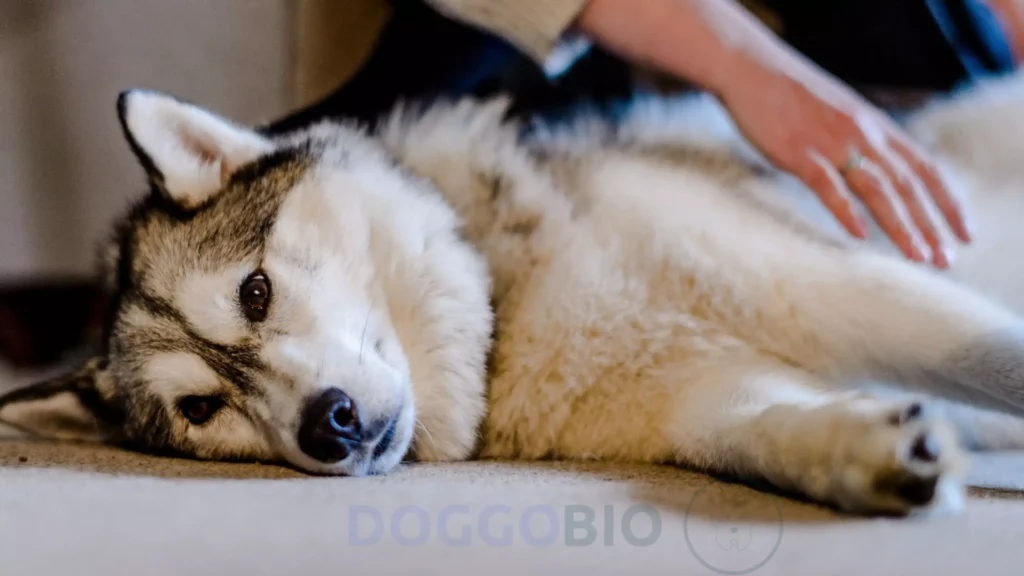Are you dealing with doggy Diarrhea? It’s like an unwelcome guest crashing your paw-ty, always showing up at the worst times. But fear not. It’s a common problem for us dog owners. These messy episodes can stem from various issues, from tummy bugs to dietary mishaps.
But here’s the silver lining: you can tweak your pup’s diet to dial down the diarrhea drama. Some foods can help ease tummy troubles but not banish them altogether. But before we dive into that, let’s tackle another pressing question: what’s behind the messy scenes of Diarrhea? And stay tuned because we’ll also cover what to feed dog with Diarrhea to get them back on track.
What Is the Most Common Cause of Diarrhea in Dogs?
Diarrhea in dogs means they’re often leaving behind soupy messes. And there are a bunch of reasons behind it:

- Pesky parasites like tapeworms, hookworms, and Coccidia.
- Nasty viruses, like parvovirus (aka parvo).
- Sneaky bacterial infections, like salmonella.
- A sudden switch in your dog’s diet without giving their tummy time to adjust.
- Stress or anxiety can send their bowels into a spin.
- And let’s remember those highly processed, junk-filled treats.
Our Dog Loves Cheese
We partner with Fromaggio for the world’s first smart home cheesemaker. Craft mozzarella in 40 minutes, aged cheddars, vegan cheeses, and more at home. Sleek, app-controlled design fits any kitchen—perfect for beginners and pros. Save 3–8 per pound vs. store-bought. Click below to claim your discount and start crafting!
Claim The 10% Off Today!
But what’s the game plan if your pup is having a poop party? It’s tricky to tell if it’s just a diet switcheroo or something more serious, like a virus. The real tell? How long does it stick around?
Is your dog’s Diarrhea a red alert?
Before diving into what to feed the dog with Diarrhea, assess if a severe health issue demands vet attention. Sure signs signal danger:

- Vomiting and diarrhea combo.
- Bloody stools or coffee ground-like appearance.
- Diarrhea persists over two days.
- Signs of dehydration: dry gums, wrinkled skin.
- Loss of appetite.
- Fever.
- Belly discomfort: bloating, groaning, panting, avoiding touch, or the “prayer position” (rear up, front down).
- Weakness or lethargy.
For some, Diarrhea equals danger, especially for pups, seniors, or those with existing health issues. If your puppy fits the bill, don’t delay—call the vet ASAP for tailored guidance.
What to Do When My Dog Has Diarrhea?
Here’s the lowdown on what to do:

- Hydrate, Hydrate, Hydrate: First things first keep calm and hydrate your hound. While occasional Diarrhea might not send you into a tailspin, it’s time for a vet to check if it’s a regular occurrence. After your puppy does their business, ensure they guzzle down some water. Diarrhea is a real thirst-maker, and your pup needs to replenish those fluids pronto.
- While on hydration duty, consider giving your furry friend a food break for 12 to 24 hours. It’s like hitting the reset button for their stomach, giving it a chance to recuperate and kickstart the healing process.
What to Feed Dog With Diarrhea?
Here’s the scoop:
1. Plain Rice:
Go for plain white rice—a gentle choice that aids digestion. Rich in fiber, it absorbs excess water, helping solidify loose stools. Skip the instant varieties with additives that may upset your pup’s stomach. Ensure it’s cooled before serving.
2. Lean Protein:
Opt for skinless boiled chicken or turkey—light on the tummy and rich in protein. Boil and chop into small pieces, and be excellent before offering. Serve alone or with rice.
3. Potatoes:
Choose plain, cooked white, or sweet potatoes with digestible starches and fiber. Avoid raw ones containing harmful solanine. Cook, peel, mash, and cool before serving.

4. Pumpkin:
Plain canned pumpkin is a fiber-rich powerhouse with gut-friendly prebiotics. It aids digestion and prevents future bouts of Diarrhea. Opt for additive-free pumpkin.
5. Oats:
Cooked porridge oats are fiber-rich and aid digestion. They absorb fluids, slow digestion, and firm up stools. Cook with water, avoiding sugar and flavorings.
6. Carrots:
Boil, mash, and serve carrots—a crunchy, fiber-rich treat. They bulk up stools, support dental health, and boost eyesight with beta-carotene.
Frequently Ask Question
What should the dog be fed to stop Diarrhea?
Opt for easy-to-digest fare like plain white rice, skinless boiled chicken, mashed potatoes, plain canned pumpkin, cooked oats, and mashed carrots. These tummy-friendly eats can help soothe your furry friend’s stomach.
How can you speed up your pup’s recovery from Diarrhea?
Keep them hydrated with lots of water. Consider giving them a short breakfast for 12-24 hours, then gradually reintroducing bland, easy-to-digest eats like plain rice, boiled chicken, and other goodies we discussed earlier.
What is the best dog food for Diarrhea?
Opt for top-notch grub that’s easy on digestion, well-balanced, and free from artificial additives.
Keep an eye out for options with limited ingredients, and if your pup is prone to tummy troubles, consider switching up their protein sources or exploring specialized diets for sensitive stomachs.
When in doubt, loop in your vet for tailored advice based on your furry friend’s needs.
Does a bland diet help dogs with Diarrhea?
Yes, but only after fasting and if symptoms have ceased. If your dog is still unwell, contact your vet. This approach suits one-off tummy upsets, not chronic issues.
Offer small portions of boiled chicken or hamburger with rice. Start with tiny servings and feed small, frequent meals every 2 to 3 hours.
A bland diet is recommended for three to five days post-diarrhea, assuming your dog is otherwise healthy. Persistent illness requires further vet care.
Is pasta beneficial for dogs with Diarrhea?
Absolutely! Plain-cooked pasta, like scrambled eggs, can benefit dogs experiencing Diarrhea. Rich in protein and gentle on the stomach, it’s unlikely to exacerbate their condition.
Could chicken cause Diarrhea in dogs?
Typically, the culprit is improper preparation. Undercooked chicken or failure to remove the skin, which contains fats that may induce nausea, can lead to Diarrhea. Seasoning, flavoring, or added preservatives are also potential triggers. However, the lean protein itself shouldn’t typically provoke Diarrhea.
Conclusion
In conclusion, when determining what to feed dog with Diarrhea, opting for bland and easily digestible foods like plain rice, boiled chicken, pumpkin, and cooked oats can help soothe their upset stomach and promote recovery. Introducing food gradually, maintaining hydration, and monitoring your dog’s symptoms are essential.
While these dietary adjustments can often alleviate Diarrhea, consulting a veterinarian is recommended for personalized advice and to address any underlying health concerns. You can support your dog’s digestive health and well-being by providing gentle and nourishing options during this uncomfortable ti
